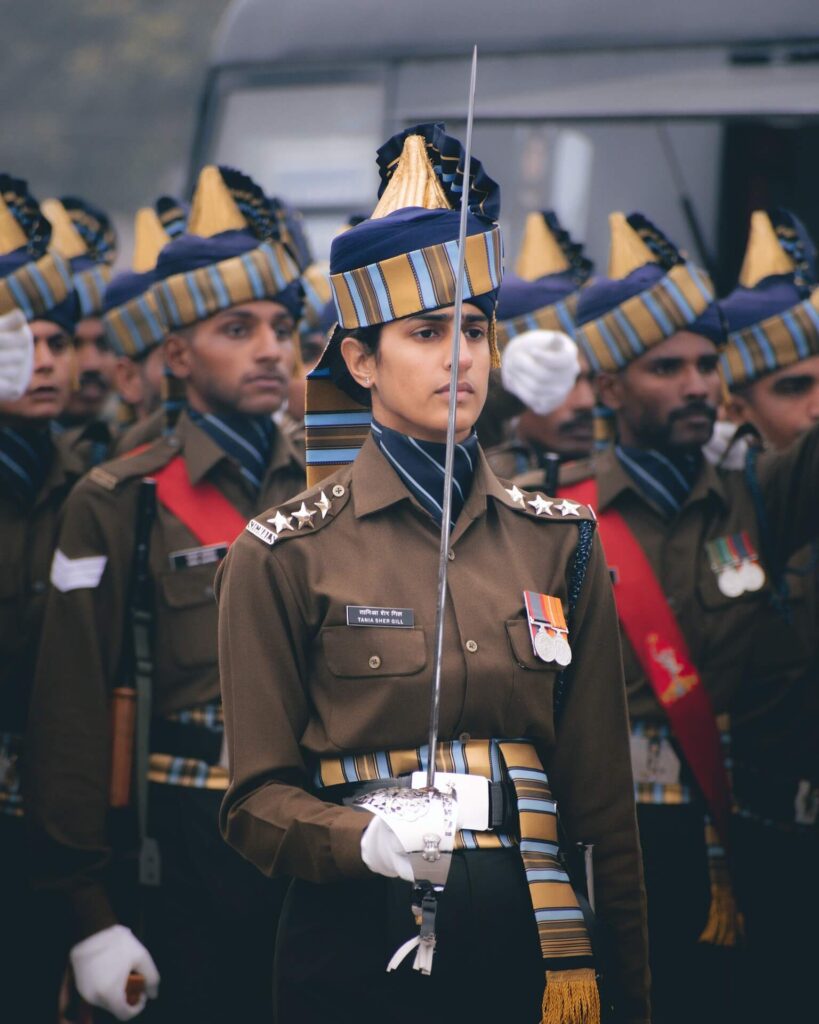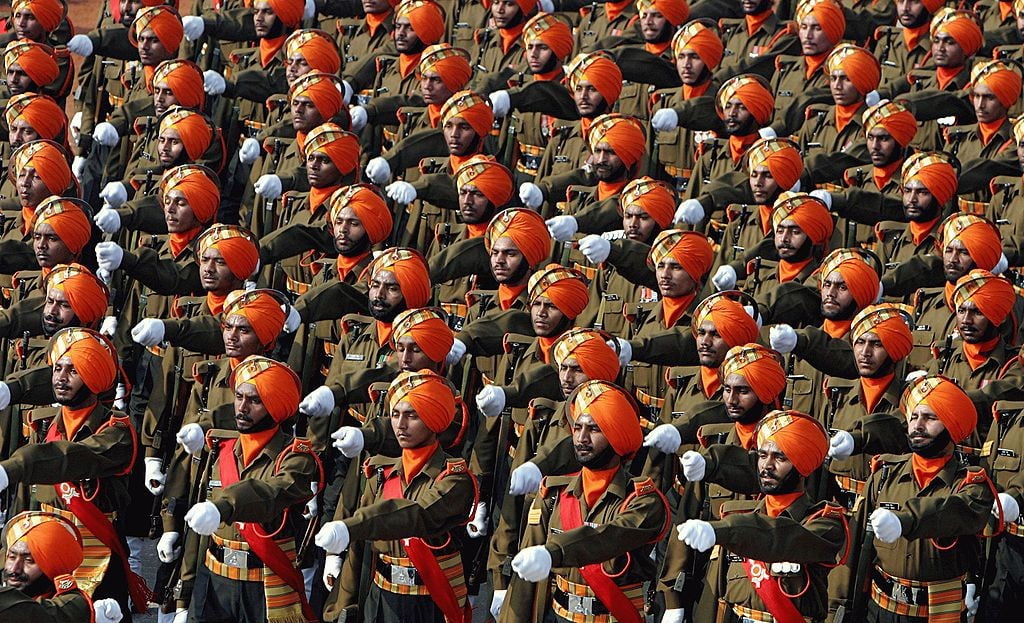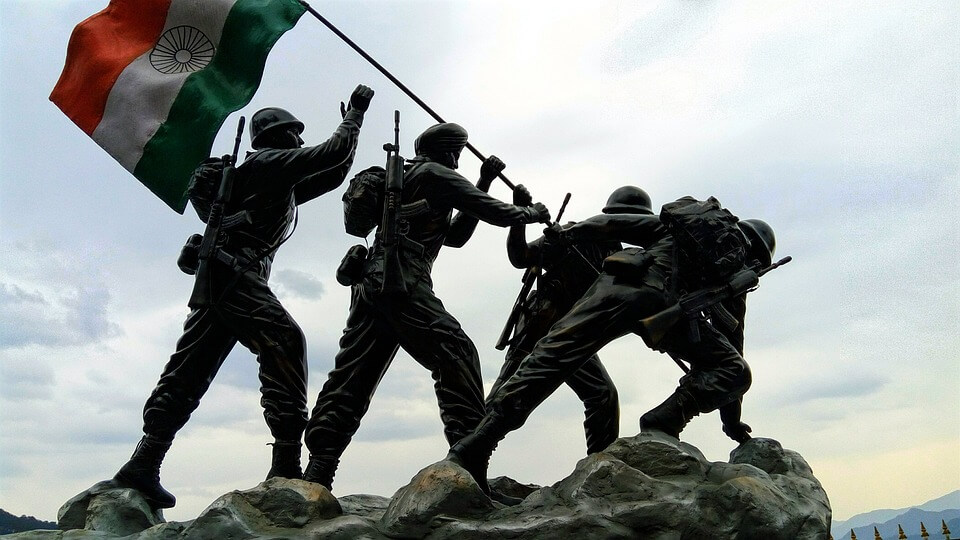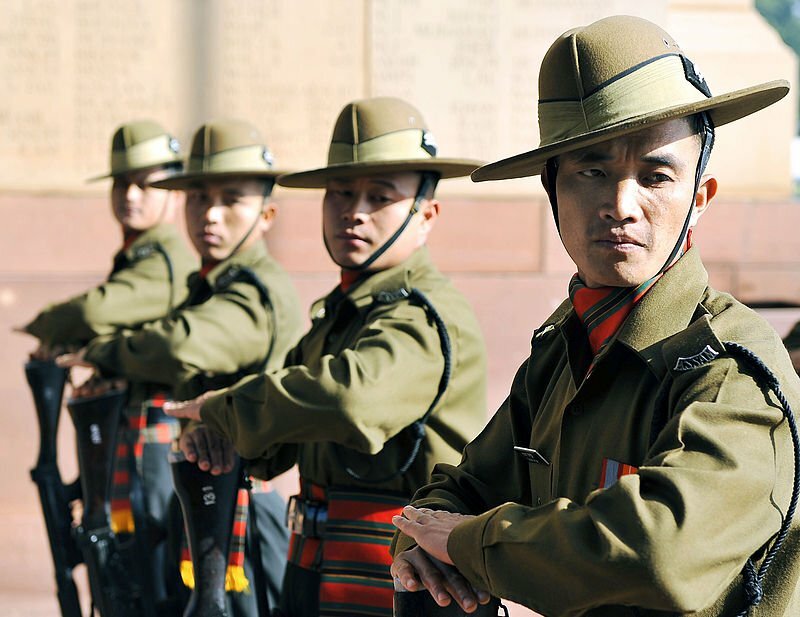
The ethos of the Indian Army is the lifeblood of its members and inspires them to carry out extraordinary acts of courage.
Leadership is an art and not a science because leaders convert defeat into victory. Military Leadership is at the highest pedestal of leadership because leading men into battle is a privilege given to a select few. From times immemorial, Indian Armed Forces have had a saga of the finest military ethos and values, so essential for victory in battle. It’s an awesome responsibility to train, motivate and lead your men to victory when both, the officer and the men he leads, are aware that some of them may not come back alive. Military service to the nation is, therefore, a tradition of the bravest of brave. Since the inception of our country, Indian Armed Forces have defended the nation primarily through the dedication of its soldiers. The country, proud of its soldiers, certainly appreciates their basic values like discipline, integrity, loyalty, patriotism, selfless service, and courage.
The unchanged ethos of soldiering
Ethics, values, and morals are the binding force of a soldier. The best example of leadership values comes from the great epic ‘Mahabharata’. In those days kings were also military leaders. After the war was over and Pandavas were victorious, Lord Krishna took King Yudhistra and his brothers to the great warrior ‘Bhishma Pitamah’, lying on a bed of arrows, to learn some lessons in ‘Rastra Dharm’ and ’Principles of Leadership’. ‘Bhisma Pitamah’ gave them three pieces of advice:

“First, the conduct of a leader at all times must be above reproach. He must control his passion and act in a righteous manner to perform ‘Rashtra Dharm’.
Second, a leader must subordinate his own interest to the cause and to the welfare of the men, he is leading.
Third, a leader must not be too indulgent. He must not be too harsh otherwise that will adversely affect the men attaining the goal.”
His views on leadership articulated thousands of years ago, continue to be relevant even today. Fast forward, 5000 years to Indian Military Academy where the Gentlemen cadets complete their training and take the oath as Officers. The Chetwode motto, given by General, Sir Philips Chetwode. Commander-in-Chief, India in 1932, during the first ‘passing out Parade’ of Indian Military Academy, is etched in the hearts of all officers, till date and remains the guiding principle throughout their military career.

The Chetwode Motto is-
“The safety, honour, and welfare of your country come first, always and every time. The honour, welfare, and comfort of the men you command come next. Your own ease, comfort, and safety come last, always and every time.”
There are striking similarities between what ‘Bhisma Pitamah’ said and what ‘General Phillips Chetwode’ has laid down. The ethos and value system of military leadership remains the same from Mahabharat to date.
The military ecosystem
The Army reflects the character of the nation’s heritage, values, and culture. The army ecosystem has to be in harmony with society to co-exist and yet be the beacon of hope for all. The concept of duty, service, and self-sacrifice has always been associated with military leadership. The sacrificial content of the leadership ethos built up over decades has served the country well and the military was able to maintain the general perception of being trustworthy professionals. While ethics is related to long tradition & social values, morality is linked to personal belief. These three words of ethics, morals, and values are the binding force of a military man.

The moral principles of the Army ethic and the Army values inherent within it have always existed and been a point of introspection amongst the members of the ecosystem. Over the years, the Army has repeatedly examined and articulated institutional values and working ethos in the rapidly changing socio-economic environment of the country. This evolution to be the best, at all times, continues even today.
The Warrior Ethos

The warrior ethos forms the heart of the military profession and operational effectiveness. The Indian soldier is amongst the best in the world because he too is imbued with the qualities of putting country above all else. He follows his officers unquestioningly and undergoes great discomfort in unbelievably difficult circumstances without complaint. The ethos of the armed forces is the essence of life for its members and inspires them to carry out extraordinary acts of courage. There are certain qualities of head and heart that separate the man in ‘Olive Greens’ from the rest of the world.
Some of these that set them apart are flagged as under-
‘Nation First’ attitude
The last hope of the nation, therefore, has to win all the time
- Follow Rastra Dharm overcoming their own affiliations.
- Secular Credentials
- Apolitical Nature.
- Role Model for the Society
- Passion to do and die for the country unmindful of own feelings, emotions, and hardships.
- Exemplary personal conduct.
The Army Values
The defining character of the Armed Forces; entrusted with the security of our nation, is built upon an intrinsic value-based system. Essential qualities of professional commitment, loyalty, duty, respect, selfless service, honour, integrity, and personal courage emanate from this ecosystem and the ethical conduct of soldiers is driven by this value system. Soldiers learn these values in detail during Basic Combat Training (BCT), and from then on they live with them every day.
Challenges of the 21st century
The 21st century is being labeled as the information age. With the revolution in military technology, future conflicts will also face the great challenge of virtual warfare. The typical ‘hand-to-hand combat’ will be the last phase of any battle or may also be reduced to a minuscule level. The advancement of Missile technology has enabled targeting beyond thousands of km, with ICBMs having ranges between beyond 6000 km and capable of hitting any target in the world. The capability of the Air Force is being proved in the Iraq, Kosovo, Afghanistan, and Ukraine wars, wherein thousands of people have been killed due to aerial bombing without the loss of a single pilot. The recent killing of Al-Qaeda Chief Ayman al-Jawahiri by a drone-fired missile is a technology demonstrator.

The changing nature of warfare, equipped with ‘Robots’, Artificial Intelligence (AI), and Machine learning as well as the expansion of national interests well beyond geographical boundaries, due to economic interests, have placed fresh challenges on soldiering. The strategic aim in future conflicts will be to subdue the enemy without fighting. Interestingly, we will be killing the enemy without seeing it, an eye to eye. Thus, the context of ethics, morale, and values of military leaders and soldiers will be defined in a new dimension and they are expected to bring major changes for military commanders at all levels.
Also Read: Promotion based on seniority or merit – what does the Army really need?
Conclusion
As India emerges to find its rightful place in the world, the Indian Army will continue to be pivotal in building a strong, modern, and resurgent India. Its ‘Nation First’ ecosystem built upon the ethos of a secular, motivated, apolitical, and professional force remains on the pedestal of national growth and prosperity. The Indian Army has a long and illustrious record; it has excelled both in war and peace; ensuring security against internal and external threats. While we have an enviable record, the future will demand increasingly higher levels of professionalism. The respect, dignity, well-being, and stature of its soldier in turn must thus be preserved and garnered by the nation.

Human resource is precious in Army because it’s the man behind the machine that wins the war. Creating an environment for learning and growth to excel in war and peace is the primary function of all commanders at each level. If the nation doesn’t invest in motivating and raising the morale of its soldiers, it’s sliding on a path of disaster. A good example of unmotivated soldiers is the Bangladesh War where 93000 soldiers having arms, equipment, and rations to fight for six months, finally surrendered because they lost the will to fight. On this Army Day, let us join hands to applaud the efforts of the great ‘Indian Armed Forces’ who made it happen.

